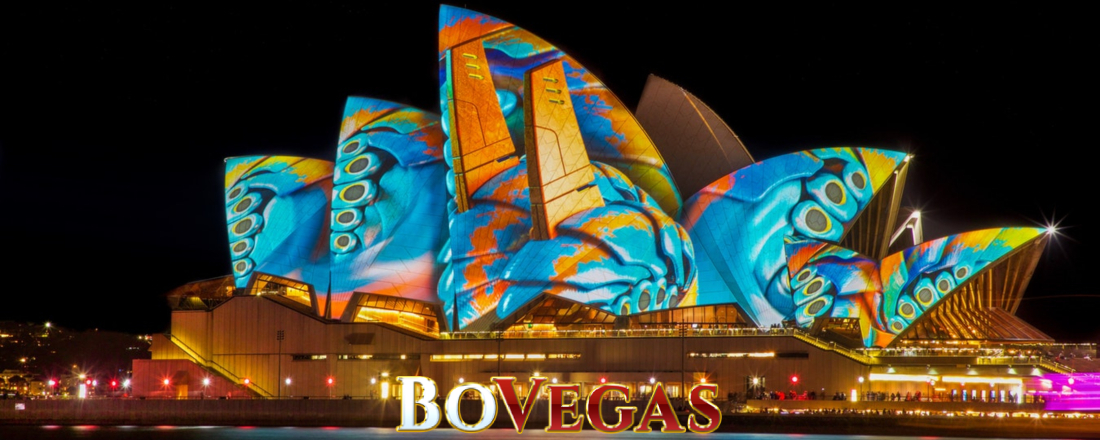



Australia is considered the most gambling country in the world, and not by chance – every year, an average Australian spends about $1300 on casino activities. What’s more, 10% of the budgets of some states consist of the income gained from the gambling business. And that’s not all. According to reports, by the end of 2020, betting operator revenues in Australia could exceed $6 billion.
Australians tend to be the most reckless gamblers in the world. Australian residents spend up to $1,300 per citizen on gambling activities annually, the world’s highest. Also, it should be noted that Australia is home to the highest concentration of slot machines.
Currently, more than a dozen casinos operate in the country. Australian gambling preferences are not homogeneous, but rather are represented by a mixed variety of choices. There are fans of online sports betting, poker, blackjack, and gambling machines. Traditions and habits, along with legal points, led to the difference in the popularity of various types of gambling in Australia.

The event associated with the birth of gambling in Australia dates back to 1810. It was a meeting at the races, held in Hyde Park in Sydney.
The first lottery was organized in 1880, while the first slot machines appeared in clubs and pubs in the 1950s. This moment can be considered the starting point in the history of gambling in Australia.
It was the British who instilled in Australians their love for sports betting at the races. Although it is impossible to determine the exact date, it’s safe to say that as long as there are sports in Australia, the Australians will bet.
When you compare online gambling with brick-and-mortar casinos and bookmaking, it is worth noting that online games are relatively new. But they are the most well-liked by residents of this continent.
The advent of the first casino site revolutionized the whole gambling industry. The first online casino was created in the 90s, and has not lost its popularity since then.
As a rule, in Australian land-based casinos, visitors play roulette and card games – blackjack or baccarat. Online casino customers prefer the same games. A game of dice holds a special place among the gambling preferences of Australians, while poker, lottery, and sports betting occupy the 5th, 6th, and 7th places, respectively.
In addition to traditional entertainment, the Australians also came up with outlandish ones. For example, games such as running crabs, camels, or guinea pigs are popular among locals. However, despite their popularity, such “competitions” remain illegal.
Two-up is a national Australian gambling game that requires only two coins. The goal of the game is to guess which side each of the coins will fall. There is even a special day when you can play two-up in pubs and clubs absolutely legally – April 25th.
The first legal poker slots (pokies) were allowed in the clubs of New South Wales in 1956 in order to generate funds to improve the conditions for their members. Residents of the state immediately fell in love with these machines. The popularity of pokies quickly exceeded the demand for other gambling games, so clubs were able to increase their assets, members, and facilities. The government of New South Wales made a significant profit from the taxation of pokies.
Pokies in clubs were legal, and the non-commercial status of clubs in the state served as a tool to exclude the hotel sector from access to slot machines until 1984. And even then, only a limited number of slots of a certain type could be used in hotels.
Despite the prosperity of New South Wales clubs and the popularity of pokies, concerns about the social background of such an ever-growing use of games as well as allegations of corruption and indecent behavior kept the governments of other states from legalizing pokies.
The Australian Capital Territory introduced a permit for pokies in 1976, mainly to ensure that Canberra residents would not take their money and patronize clubs in neighboring states.
Since the 1980s, playing pokies (in clubs, hotels, and casinos) has supplanted betting and lottery from the first positions of the most popular forms of gambling in Australia. New and fast computerized games, progressive jackpots and other innovations helped to preserve consumer interest.
By the 1990s, computerization improved the reliability of the pokies themselves and the procedures for their verification. This technological development, as well as financial tension and a softening of attitudes towards gambling in society, convinced all states, except Western Australia, to legalize slot machines in clubs and hotels. The loss of profits from gambling across state lines was also a decisive factor in legalizing slots in Queensland and Victoria. As for Western Australia, in 1996, non-cash lottery terminals were legalized for clubs and hotels.
Each state came up with its own methods for regulating and administering pokies, as well as policies for solving social problems associated with this type of gambling. For example, the numbers of machines and their distribution between clubs and hotels vary greatly from state to state.
According to statistics, about a quarter of all slot machines in the world are in Australia, more than 50% of which are in New South Wales. By concentration of slot machines, this state is second only to Nevada in the USA. More than half of all state revenues from gambling go to the treasury through taxation of pokies. Gambling research confirms this information.
Top Five Casinos in Australia:

Taxation of gambling operators varies from state to state, and different tax rates are imposed on different types of gambling. There are taxes on turnover, on a losing player, and also on net profit. Since operators must obtain a license to conduct legal activities, they also have to pay state fees at this stage.
As already mentioned, gambling revenues vary from state to state, but on average it is 10% of the budget. The state of Victoria is more dependent on gambling than the others to fill the treasury – there, gambling accounts for 13% of all revenue. In the state of Western Australia, where many forms of gambling entertainment are still prohibited, players make a profit of only 4% of the budget.
Also, according to the research company IBISWorld, by 2020 profits from the gambling business in Australia could exceed $6 billion. However, a favorable forecast will be realized only if three new casinos open.
Australian fans who bet on horse racing on illegal sites will face more severe punishment.
Gambling in Australia is a unique phenomenon that significantly influences the attitudes about gambling in other countries.

The Global Gaming Awards are among the most prestigious and reputable gaming bounty in the world. They were first established in 2014, in order to provide recognition for the most innovative individuals and companies in the world of gaming. With two ceremonies being held every year, in both Las Vegas and London, the Awards relate […]
To a resident of any liberal country today, the United Arab Emirates is synonymous with luxurious exotic resorts, a buttoned-down sexist lifestyle and an essentially stringent mechanism of rather odd restrictions. Ever since the first historical records of this Arab nation, it has been known for its die-hard religious philosophy that promotes Islamic fanaticism. Little […]
It might have taken some time for cryptocurrencies to claim their rightfully earned place as the number one payment option of the internet age; but once their popularity spiked and they finally became such an eminently hot topic, it was clear the internet currency world would never look the same again.Related Posts Blockchain Casinos – […]
Cryptocurrency has caused the same excitement on the global markets as the Golden Rush at the beginning of the XIX century. Everyone wants a piece of it, investing in a variety of currencies from Bitcoin or Litecoin to some quite ridiculous ones like Dogecoin. There are many programmers, business analysts and journalists out there arguing […]
If you love gambling and have been to a land-based casino at least once, you may have thought about becoming a dealer. Playing the same game but from the opposite side, while communicating with other players, sounds like a dream job, right? A dealer is a straightforward job, and you will be the heart and […]
On Monday September 14, MGM announced that it plans to open its first smoke-free casino at the end of September, when Park MGM will finally reopen its venues to players and tourists. The resort comprises around 2,990 rooms and various restaurants, and it’s set to be reopened on September 30. The venue has been closed […]
Online gambling has undoubtedly taken a place of true supremacy over the casino industry during the pandemic. And the reason for that is quite clear: online casinos are more accessible, and you can always count on some encouragement from the casino administration to help you boost your game. However, this digital revolution has only been […]
The large selection of online gambling sites out there can make players somewhat puzzled, and give them a feeling of uncertainty about making the right choice of casino. Each online gambling venue offers its own conditions, games, and various bonuses, of course; but the most important thing is the reliability of the casino and the […]